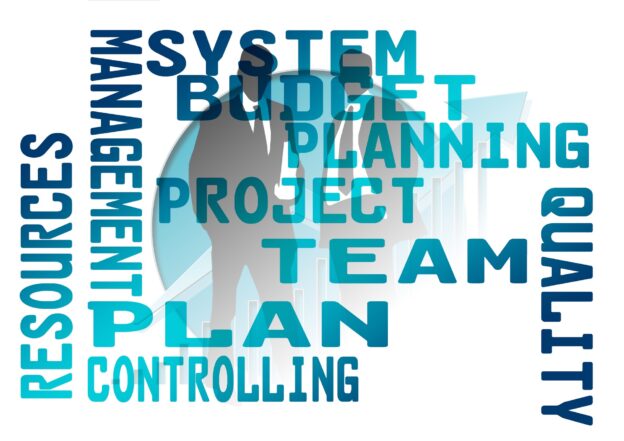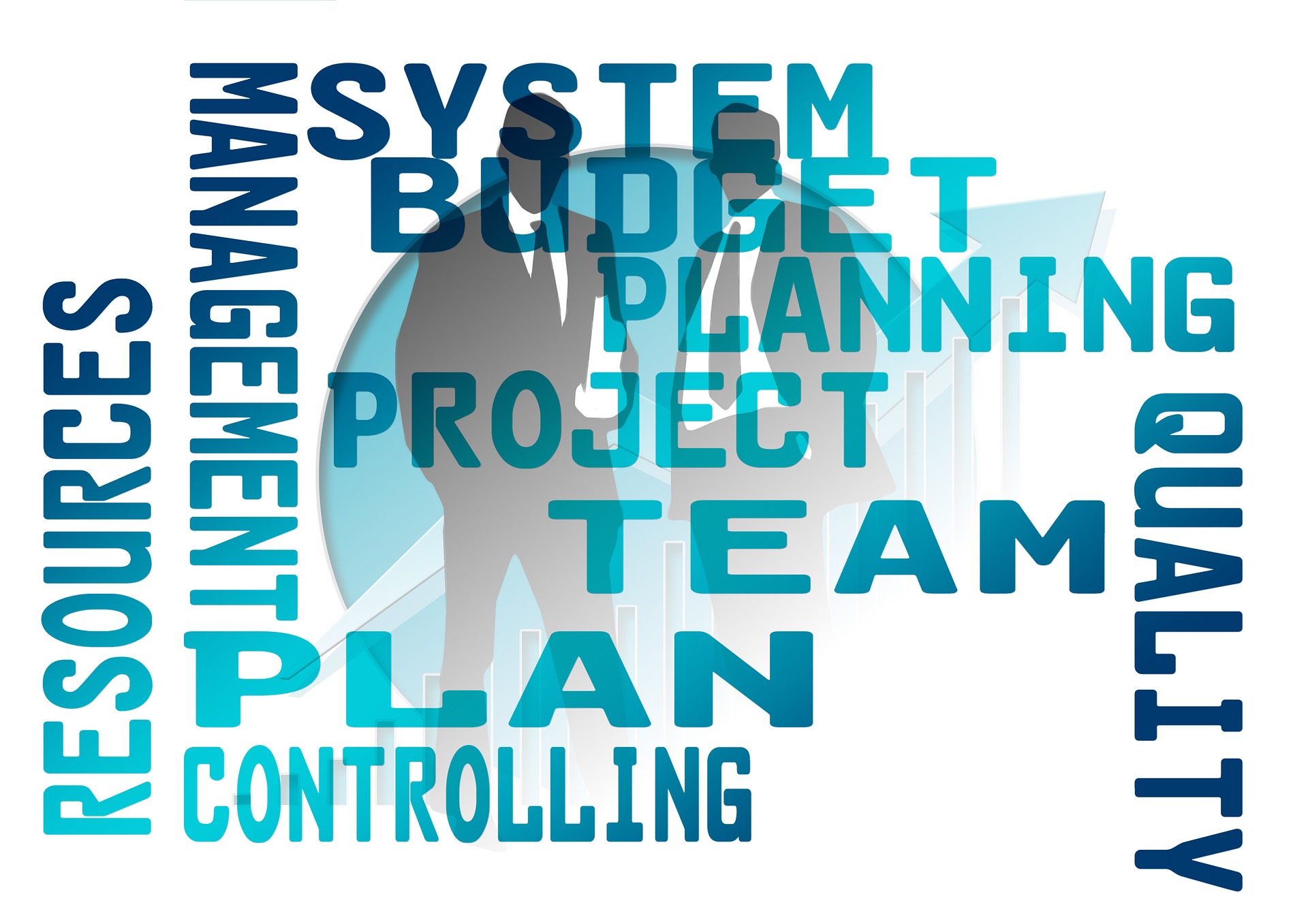Divorce can be an emotionally challenging process, and it is crucial to handle the financial aspects with careful consideration and planning. In this article, we will explore the importance of setting goals when it comes to divorce and financial planning. We will address common legal concerns, provide reassurance and guidance, and delve into the steps you can take to secure your financial future during this difficult time. By incorporating important information and creating emotional connections, we aim to help you navigate the complexities of divorce while optimizing your financial well-being. So, let’s begin this journey by setting clear goals and taking the necessary steps to achieve them. Remember, you don’t have to face this challenging time alone – feel free to reach out to us for a consultation.
Understanding the Financial Impact of Divorce
Divorce is a life-altering event that can have significant financial implications. It is crucial to approach this process with a clear understanding of its financial impact and to develop a comprehensive plan to navigate the changes that lie ahead. In this article, we will explore various aspects of financial planning during divorce and provide guidance on how to protect your financial interests.
The importance of financial planning during divorce
Financial planning during divorce is essential to ensure that you are prepared for the financial changes that will occur. It involves assessing your current financial situation, identifying assets and liabilities, setting short-term and long-term financial goals, and creating a budget for life after divorce. By taking a proactive approach to financial planning, you can minimize the negative impact of divorce on your financial well-being.
Assessing the financial situation
Before you can create a solid financial plan, it is crucial to assess your current financial situation. This involves gathering all relevant financial documents, such as bank statements, tax returns, and investment statements. By reviewing these documents, you can determine the value of your assets, the extent of your debts, and your overall net worth. Understanding your financial situation will help you make informed decisions during the divorce process.
Identifying assets and liabilities
As part of the financial planning process, it is important to identify all assets and liabilities that will be subject to division during the divorce. Assets can include real estate, bank accounts, investments, retirement savings, and personal property. Liabilities may include mortgages, credit card debt, student loans, and other outstanding loans. By having a comprehensive understanding of your assets and liabilities, you can advocate for a fair division of property in the divorce settlement.
Determining the short-term and long-term financial goals
Divorce brings significant changes to your financial circumstances, and it is essential to establish both short-term and long-term financial goals. Short-term goals may include meeting immediate expenses, such as legal fees and moving costs, while long-term goals could involve planning for retirement, buying a new home, or funding your children’s education. By setting clear financial goals, you can prioritize your financial decisions and work towards your desired future.
Creating a Budget for Life after Divorce
One of the key components of financial planning after divorce is creating a budget that reflects your new financial reality. This involves assessing your income and expenses and developing a realistic budget that allows you to meet your financial obligations and achieve your goals. Let’s delve into the steps involved in creating a post-divorce budget.
Assessing income and expenses
The first step in creating a budget for life after divorce is to assess your income and expenses. Calculate your post-divorce income, taking into account any changes in employment, spousal support, or child support payments. Next, determine your monthly expenses, including mortgage or rent payments, utilities, groceries, transportation costs, and discretionary spending. This evaluation will give you a clear picture of your financial resources and the amount available for saving or investing.
Alimony and child support considerations
If you are entitled to receive or required to pay alimony or child support, it is essential to consider these financial obligations when creating your budget. Be sure to account for the amounts specified in the divorce settlement and factor them into your monthly income or expenses. Understanding your financial responsibilities will help you make informed decisions about how to allocate your funds.
Developing a realistic post-divorce budget
Once you have assessed your income and expenses, it is time to develop a realistic post-divorce budget. Start by categorizing your expenses into essential and discretionary categories. Essential expenses include housing, utilities, groceries, transportation, and healthcare, while discretionary expenses may encompass entertainment, dining out, and vacations. Prioritize your essential expenses and adjust your discretionary spending based on your financial resources. Ensure that your budget aligns with your financial goals and allows for responsible saving and spending.
Accounting for unexpected expenses
When creating a budget for life after divorce, it is crucial to account for unexpected expenses that may arise. Divorce often brings unforeseen financial challenges, such as legal fees or unexpected repairs. Building an emergency fund as part of your budget can provide a cushion to deal with these unexpected costs. Aim to set aside three to six months’ worth of living expenses in an easily accessible savings account to protect yourself from financial hardship.
Protecting Your Credit and Managing Debt
Divorce can have a significant impact on your credit and may result in the accumulation of debt. It is essential to understand the implications and take steps to protect your credit during the divorce process. Additionally, managing debt effectively will help you regain financial stability after divorce. Let’s explore some strategies for protecting your credit and managing debt during divorce.
Understanding the impact of divorce on credit
Divorce can negatively affect your credit score if joint accounts are mismanaged or if one spouse fails to make payments on shared debts. Late payments, defaults, or high credit utilization can harm your creditworthiness and make it more challenging to secure loans or credit in the future. It is crucial to be aware of the potential impact on your credit and take steps to mitigate any negative consequences.
Steps to protect your credit during divorce
To protect your credit during divorce, it is essential to take certain proactive measures. Start by closing joint accounts or removing your name from them to prevent future liabilities. Monitor your credit report regularly to identify any unauthorized activities or discrepancies. Establish individual accounts for utilities, credit cards, and other expenses to separate your financial responsibilities. By taking these steps, you can safeguard your credit and maintain financial independence.
Dealing with joint debts
Divorce often involves the division of joint debts accumulated during the marriage. It is crucial to address these debts responsibly to protect your credit. If possible, work with your spouse to develop a plan for paying off joint debts or negotiate a settlement that allocates responsibility for each debt. If necessary, consult with a financial professional or attorney to ensure a fair and equitable division of debts that considers your best interests.
Developing a strategy for debt management
After divorce, it is important to develop a strategy for managing your debt effectively. Start by evaluating your existing debts and their interest rates. Prioritize paying off high-interest debts first, as they can quickly accumulate and hinder your financial progress. Consider consolidating debt or negotiating with creditors to obtain more favorable repayment terms. Develop a plan to make regular payments and reduce your overall debt burden over time.
Managing Your Assets
During divorce, the division of marital assets is a significant aspect of the process. Understanding how to manage these assets, including their valuation and potential tax implications, is crucial for securing your financial future. Let’s dive into the various considerations when managing your assets during divorce.
Division of marital assets
Marital assets generally include any property or possessions acquired during the marriage. This can include real estate, vehicles, investments, retirement savings, and personal belongings. The division of marital assets can vary depending on state laws and individual circumstances. It is important to consult with a professional, such as a divorce attorney or financial planner, who can guide you through the process and advocate for a fair distribution of assets.
Valuation of assets
Determining the value of assets is essential for an equitable division during divorce. Real estate properties can be appraised by professionals, and investments can be valued based on market prices. Personal belongings may require individual assessment or negotiation. By obtaining accurate valuations, you can ensure that your division of assets is fair and reflective of their true worth.
Considering tax implications
When managing your assets during divorce, it is important to consider the potential tax implications of any decisions made. For example, selling certain assets may result in capital gains tax, while transferring others may trigger gift or estate tax considerations. By understanding the tax implications, you can make informed decisions that minimize your tax liabilities and maximize your financial stability.
Determining the best approach for asset division
Dividing assets during divorce requires careful consideration and negotiation. It is essential to determine the best approach for asset division that meets your financial goals and aligns with your priorities. Different options may include selling assets and dividing the proceeds, retaining ownership of specific assets while providing compensation to the other spouse, or exchanging assets of equal value. Working with professionals can help you explore these options and determine the best strategy for managing your assets.
Insurance and Estate Planning Considerations
Divorce necessitates a review of insurance policies and estate planning documents to ensure that you are adequately protected and that your wishes are reflected accurately. Let’s explore the insurance and estate planning considerations that arise during and after divorce.
Evaluating existing insurance policies
As part of your financial planning during divorce, it is important to evaluate any existing insurance policies you have. This includes life insurance, health insurance, disability insurance, and any other policies you hold. Determine if changes are necessary, such as updating beneficiaries or adjusting coverage amounts. This assessment will help ensure that your insurance coverage aligns with your post-divorce needs.
Health insurance considerations
If you are covered under your spouse’s health insurance policy, divorce may result in a loss of coverage. It is crucial to assess your options and secure health insurance for yourself and any dependents. This may involve obtaining coverage through your employer, exploring private insurance options, or researching government programs. Understanding your health insurance options will help protect your financial well-being and ensure access to essential healthcare services.
Updating beneficiaries and estate planning documents
Divorce necessitates a review and update of beneficiaries and estate planning documents. This includes updating your will, trust, and powers of attorney to reflect your post-divorce wishes. Remove your ex-spouse as a beneficiary of any assets or policies and appoint new individuals to assume roles such as executor or guardian. By updating these documents, you can ensure that your estate is distributed according to your wishes and that the appropriate individuals are entrusted with important responsibilities.
Navigating insurance and estate planning post-divorce
Navigating insurance and estate planning after divorce can be complex, and it is often beneficial to seek professional guidance. Consult with a knowledgeable insurance agent or estate planning attorney who can help you understand your options, update your policies and documents, and ensure that your financial and personal affairs are in order. Their expertise will provide reassurance and guidance during this significant life transition.
Retirement Planning and Divorce
Divorce can have a profound impact on retirement plans and the financial security you had been working towards. Understanding the implications and taking proactive steps to protect your retirement assets are crucial for your long-term financial well-being. Let’s explore the considerations and strategies for retirement planning during and after divorce.
Understanding the impact of divorce on retirement plans
Divorce can affect retirement plans in various ways. Retirement savings accumulated during the marriage may be subject to division as part of the divorce settlement. Additionally, retirement income projections may need to be adjusted based on changes in expected sources of income, such as social security benefits or pension payments. It is important to be aware of the potential impact on your retirement plans and take necessary steps to protect your financial future.
Division of retirement assets
As part of the divorce process, retirement assets acquired during the marriage are typically subject to division. This can include employer-sponsored retirement accounts, such as 401(k)s or pensions, as well as individual retirement accounts (IRAs) and other investment accounts. The division of retirement assets typically follows state-specific laws and may require a Qualified Domestic Relations Order (QDRO). Working with a qualified professional can help ensure a fair and equitable division of these assets.
Retirement income projections
After divorce, it is crucial to reassess your retirement income projections based on the changes that have occurred. Evaluate the impact of any division of retirement assets and consider adjustments to expected social security benefits or other income sources. By understanding the implications of divorce on your retirement income, you can make informed decisions and take necessary steps to secure your financial future.
Seeking professional advice for retirement planning
Retirement planning can be complex, and divorce adds an additional layer of complexity to the process. Engaging with a financial advisor who specializes in divorce-related matters can provide valuable guidance. They can help you assess your retirement goals, adjust your investment strategy, explore options for maximizing retirement savings, and create a plan to ensure a comfortable retirement. Seeking professional advice will help you navigate the intricate world of retirement planning and make the most of your financial resources.
Tax Planning Strategies for Divorce
Divorce can have significant tax implications that can impact your financial situation. Understanding the tax consequences and implementing effective tax planning strategies can reduce your tax liabilities and optimize your finances. Let’s explore the considerations and strategies for tax planning during and after divorce.
Understanding the tax implications of divorce
Divorce can affect your tax situation in various ways, including changes in filing status, deductibility of certain expenses, and potential tax consequences of property transfers. Understanding the tax implications is crucial to make informed financial decisions and minimize your tax liabilities. Consult with a tax professional who specializes in divorce-related tax matters to get a clear understanding of the impact on your tax situation.
Filing status considerations
After divorce, your filing status for tax purposes will likely change. If you are no longer married as of December 31st, you will generally file as single or head of household, depending on your circumstances. Consider the potential impact on your tax brackets, deductions, and eligibility for certain tax credits. Understanding the implications of your filing status will help you navigate the tax landscape effectively.
Alimony and child support tax treatment
Alimony and child support payments can have different tax treatment. Prior to 2019, alimony payments were generally tax-deductible for the paying spouse and taxable income for the recipient. However, under current tax laws, new alimony agreements are not tax-deductible for the paying spouse, and the recipients do not have to include them as taxable income. Child support payments, on the other hand, are neither taxable nor deductible. It is important to understand the tax treatment of these payments to accurately plan your finances.
Utilizing tax deductions and exemptions
During and after divorce, it is important to utilize all available tax deductions and exemptions to minimize your tax liabilities. Explore deductions related to childcare expenses, education expenses, mortgage interest, and other eligible expenses. Additionally, ensure that you claim the appropriate tax exemptions for yourself and any dependents. By taking advantage of these tax benefits, you can optimize your financial situation and reduce your overall tax burden.
Considering Child Support and College Expenses
For couples with children, divorce brings additional financial considerations related to child support and college expenses. Understanding your rights and responsibilities, as well as planning for the future, is crucial to ensure the well-being and education of your children. Let’s explore the considerations and strategies for managing child support and college expenses during and after divorce.
Calculating child support payments
Child support is intended to ensure that children’s financial needs are met after divorce. The specific calculations and guidelines for child support vary by state. Typically, factors such as each parent’s income, custody arrangements, and the children’s needs are taken into account. It is important to consult with a family attorney or mediator who can help you understand the child support guidelines in your jurisdiction and ensure a fair and appropriate support arrangement.
Modifications to child support orders
Over time, circumstances may change, warranting modifications to child support orders. Job loss, changes in income, or significant changes in custody arrangements may necessitate adjustments to the amount of child support. If you believe that a modification is needed, consult with a family attorney who can guide you through the legal process and advocate for your interests.
Planning for college expenses
Divorce brings additional considerations when planning for your children’s college expenses. It is important to have open and honest discussions with your ex-spouse about how you will fund your children’s education. Determine the amount you are willing and able to contribute and explore options such as college savings plans, scholarships, or financial aid. By planning ahead and having a clear understanding of your obligations, you can ensure that your children’s education remains a priority.
529 plans and other savings vehicles
529 plans are tax-advantaged savings plans designed to help families save for education expenses. These plans can be an effective tool for saving for your children’s college education, even after divorce. Explore the options available in your state and consider opening a 529 plan to maximize your savings. Additionally, consider other savings vehicles, such as custodial accounts or trusts, that can provide additional resources for your children’s future.
Seeking Professional Financial and Legal Advice
Navigating the financial and legal complexities of divorce requires expert guidance. Seeking professional assistance from both financial and legal professionals can ensure that you receive the support and expertise needed to protect your interests and achieve favorable outcomes.
The importance of consulting financial and legal professionals
Divorce is a complex process with significant financial and legal implications. Consulting with financial and legal professionals is essential to have a clear understanding of your rights, responsibilities, and options. Financial professionals, such as divorce financial planners or certified financial analysts, can help you evaluate your financial situation, develop a comprehensive plan, and advocate for your financial goals. Legal professionals, such as divorce attorneys or mediators, can provide guidance on legal proceedings, assist with negotiations, and ensure that your rights are protected throughout the process.
Choosing the right professionals
Choosing the right professionals to assist you during divorce is crucial for a successful outcome. Take the time to research and interview potential financial planners and attorneys to ensure that they have the necessary expertise and experience in divorce-related matters. Look for professionals who specialize in divorce and demonstrate a deep understanding of the legal and financial complexities involved. Trust your instincts and select professionals with whom you feel comfortable and confident.
Collaborating with professionals for optimal outcomes
Collaborating with both financial and legal professionals is key to achieving optimal outcomes during divorce. Work closely with your financial planner and attorney to ensure that your goals are aligned and your strategies are coordinated. Share relevant information, ask questions, and engage in open and honest communication throughout the process. By working together, you can navigate the complexities of divorce and achieve a favorable financial outcome.
Financial and legal resources for divorce planning
There are numerous resources available to support individuals going through divorce. Many organizations offer information, tools, and resources specifically tailored to divorce planning. Additionally, online forums, support groups, and educational materials can provide valuable insights and guidance. Take advantage of these resources to educate yourself about the process, learn from others’ experiences, and feel empowered throughout your divorce journey.
Frequently Asked Questions (FAQs)
What steps should I take to protect my financial interests during divorce?
To protect your financial interests during divorce, it is important to take several steps:
- Gather all relevant financial documents and assess your current financial situation.
- Consult with financial and legal professionals who specialize in divorce.
- Develop a comprehensive financial plan that aligns with your goals and priorities.
- Create a budget for life after divorce that reflects your new financial reality.
- Protect your credit by monitoring your credit report, closing joint accounts, and establishing individual accounts.
- Understand the tax implications of divorce and implement tax planning strategies.
- Evaluate and divide marital assets in a fair and equitable manner.
- Review and update insurance policies and estate planning documents.
- Seek professional advice to ensure that child support and college expenses are properly addressed.
How can I ensure a fair division of assets during divorce?
Ensuring a fair division of assets during divorce requires careful consideration and negotiation. Follow these steps to help achieve a fair and equitable outcome:
- Gather all relevant financial documents to assess your assets and liabilities.
- Develop a clear understanding of the value of your assets through professional valuations when necessary.
- Consult with a divorce attorney or financial planner who can guide you through the asset division process.
- Consider the tax implications of different asset division strategies.
- Negotiate with your spouse to reach a mutually agreed-upon division of assets.
- If necessary, involve professionals, such as mediators or arbitrators, to assist with the negotiation process.
- Document the agreed-upon division of assets in a legally binding agreement.
What are the tax consequences of divorce?
Divorce can have several tax consequences that can impact your financial situation. Some common tax consequences include:
- Change in filing status: Your filing status for tax purposes will likely change from married filing jointly to single or head of household.
- Property transfers: Transferring property between spouses during divorce may trigger capital gains tax or gift tax implications.
- Alimony and child support: The tax treatment of alimony and child support payments has changed in recent years. Currently, alimony payments are not tax-deductible for the payor, and the recipient does not have to include them as taxable income. Child support payments, on the other hand, are neither taxable nor deductible.
- Dependent exemptions: Determine the appropriate allocation of dependent exemptions to ensure that you claim the correct tax benefits for yourself and any children.
- Retirement accounts: Division of retirement accounts may have tax consequences depending on the specific accounts and their transfer method.
- Legal fees: Depending on your circumstances, legal fees related to divorce may or may not be tax-deductible.
To understand the specific tax consequences of your divorce, consult with a tax professional who specializes in divorce-related tax matters.
In conclusion, navigating the financial aspects of divorce requires careful planning and the expertise of professionals. By understanding the financial impact of divorce, creating a budget, managing debt, protecting credit, managing assets, considering insurance and estate planning, planning for retirement, implementing tax planning strategies, and addressing child support and college expenses, you can ensure a smooth transition and a strong financial foundation for the future. Seek the guidance of financial and legal professionals and educate yourself on the various considerations and options available to you. By taking a proactive approach and making informed decisions, you can protect your financial interests and embark on a new chapter of life with confidence and stability.
FAQs:
- What steps should I take to protect my financial interests during divorce?
- Assess your current financial situation, consult with financial and legal professionals, develop a comprehensive financial plan, create a budget, protect your credit, understand the tax implications, evaluate and divide assets, update insurance policies and estate planning documents, and seek professional advice for child support and college expenses.
- How can I ensure a fair division of assets during divorce?
- Gather relevant financial documents, assess asset values, seek professional guidance, consider tax implications, negotiate with your spouse, involve professionals if necessary, and document the agreed-upon division of assets.
- What are the tax consequences of divorce?
- Divorce can affect filing status, property transfers, alimony and child support, dependent exemptions, retirement accounts, and legal fees. Consult with a tax professional to understand the specific tax implications of your divorce.



















